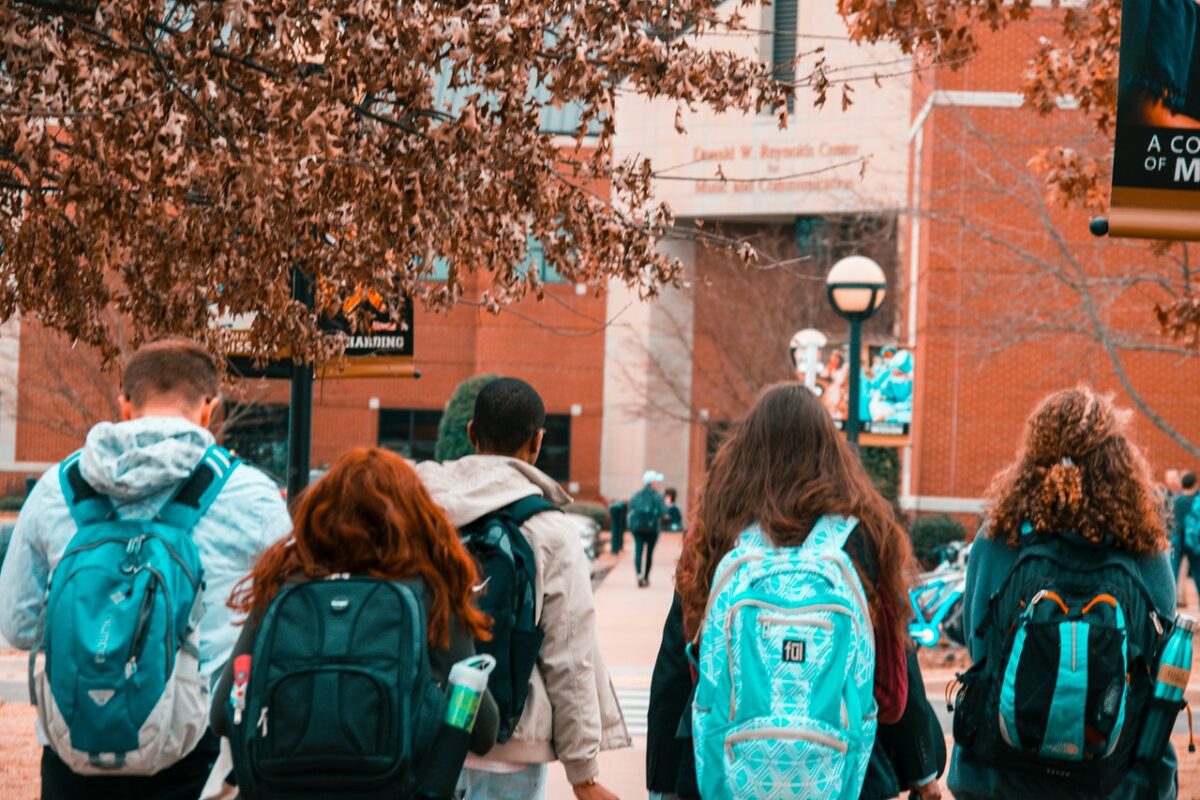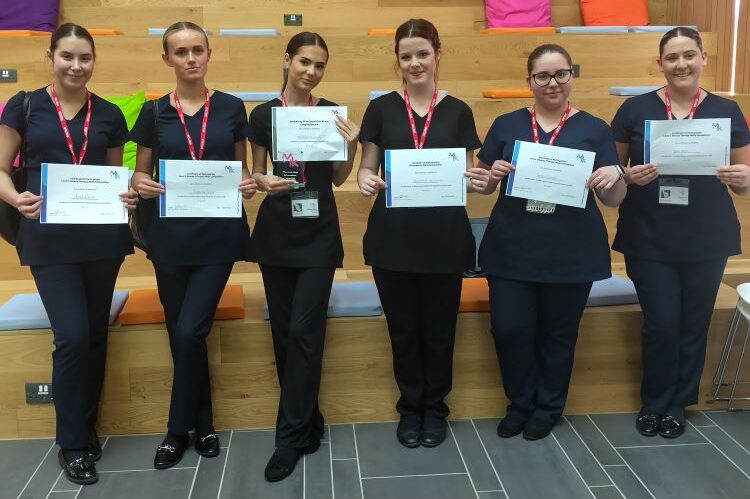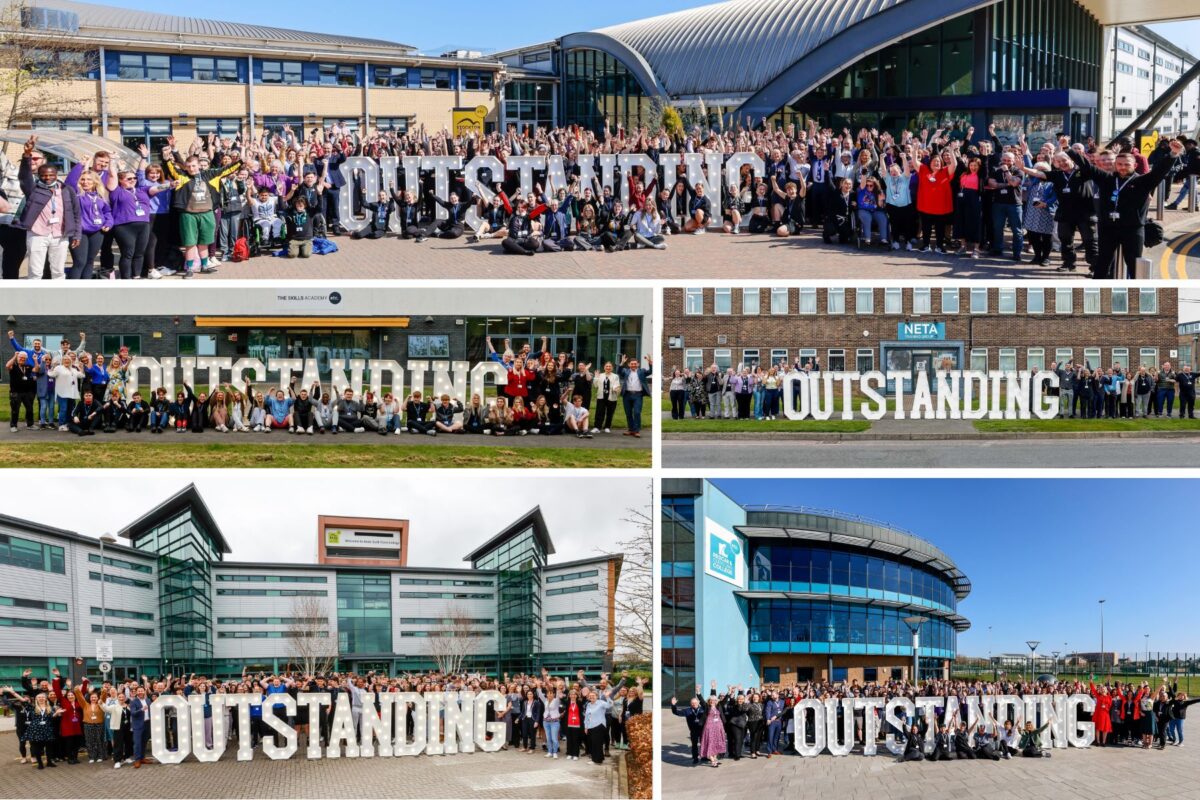State schools being more heavily impacted by Covid-related staff absences than private schools

State schools are being more heavily impacted by covid-related staff absences than private schools, with state school teachers almost twice as likely to report that one in 10 or more of their colleagues were absent due to covid (20% vs 12%).
This is according to new Sutton Trust research with Teacher Tapp, which gives the first comprehensive overview of the impact of covid on English schools at the start of this term.
Staff absences were more pronounced in the most deprived state schools, which were almost three times more likely than private schools to report that one in 10 or more of their staff were absent (29% vs 12%). This further highlights the ongoing impact of the pandemic on the most disadvantaged students.
As a consequence of this disruption, almost a quarter of state school teachers have prepared materials for online learning in the last week. However, a fifth of schools reported that more than 10% of their isolating pupils still don’t have access to devices for remote learning, a figure which almost doubles in the most deprived schools. While the picture on remote learning has improved since January 2021, many schools are still struggling to access devices for their pupils.
Today’s research also highlights differences in staff absences by region, with schools in the North West reporting the highest levels of absences, followed by Yorkshire and the North East. Across the country, roughly 4% of teachers were isolating due to covid this Monday (10th January).
Teachers were also asked about other issues caused by the current wave of the pandemic. The most common issue raised by state schools was non-teaching staff having to cover lessons due to staff absences (28%). Almost one in 10 (8%) teachers said that more than one class was being taught together due to staff shortages. A similar proportion said that staff were unable to come in due to lack of access to lateral flow or PCR test, with access to adequate tests more of an issue in the most deprived state schools.
Today’s research highlights the ongoing challenges facing schools, particularly those serving the most disadvantaged communities. The Sutton Trust is calling on the government to urgently ensure that all pupils have access to a device for remote learning and that schools have adequate funding to pay for cover for absent staff.
The continuing disruption also strengthens the case for a more comprehensive education recovery plan, with support targeted at disadvantaged pupils who have been hit hardest by the pandemic. Further support, tied to long term monitoring of learning loss, is needed to ensure attainment gaps don’t widen further. With exams likely to go ahead this year, colleges, universities and employers making decisions on the basis of exam grades should give extra consideration for those who have suffered the greatest impacts of the pandemic on their learning.
Sector Response
Sir Peter Lampl, founder and chair of the Sutton Trust and chair of the Education Endowment Foundation, said:
“While most children are now back at school, disruption is continuing with schools heavily impacted by covid related staff absences. The most deprived schools were almost three times more likely than private schools to report that one in 10 or more of their staff were absent (29% vs 12%).
“We must do all we can to ensure that poorer pupils are not further disadvantaged as a result of this disruption. As more pupils move to remote learning again, all pupils must have the resources they need to learn from home. The most important thing for the government to do is to strengthen existing education recovery and make sure sufficient funding is being provided to cover absent staff.”
Commenting on new research by the Sutton Trust with Teacher Tapp on the impact of the pandemic on schools at the start of this term, Paul Whiteman, general secretary of school leaders’ union NAHT, said:
“These figures support NAHT’s own survey findings, showing that staff absence so far this term has been significant. Schools are doing a brilliant job to keep things going in the face of very challenging circumstances, but it is very far from business as usual. There is no escaping the fact that this level of workforce absence will have a significant impact on education.
“It is worrying that schools serving the most deprived areas seem to be reporting the most staff off sick. Children from more deprived backgrounds have had it the toughest during the pandemic and need the most help now, so if there’s some reason they’re being disproportionately impacted by staff absence, that needs to be urgently looked at. It is unacceptable that two years into the pandemic some children and young people still don’t have access to devices for remote learning.
“It is also very concerning that a lack of access to Covid tests might be exacerbating the staffing crisis. Any schools struggling to access lateral flow tests must be helped immediately.”
Commenting on new research from Teacher Tapp published by Sutton Trust, Kevin Courtney, Joint General Secretary of the National Education Union, said:
“This report is further evidence that pupils from more deprived backgrounds are being hit hardest by coronavirus. Boris Johnson is presiding over rapidly growing social divides. The report also makes abundantly clear that the Department for Education is paying no heed to the issues that are facing the most disadvantaged pupils, which teachers, support staff and school leaders have been highlighting throughout the pandemic. The roll-out of laptops was unforgivably slow, making remote learning harder for pupils, parents and teachers alike. The Prime Minister’s tin ear when it came to an extension of free school meals at the height of the pandemic was a saddening indication that the Government may well talk loudly about how schools are vital, but actions are more important than words. They had no real strategy for schools during Covid and continue to have an inadequate approach to education recovery.
“This is not a decisive Government. It must give schools the equipment they need to ensure proper ventilation in schools and colleges in an attempt to keep Covid infection down. Every classroom that needs an air purifier should be supplied with one to ensure staff and pupils’ health and keep absences as low as possible. It simply isn’t good enough to rely on a workforce of retired teachers appearing from thin air.”
Commenting on research from the Sutton Trust conducted with Teacher Tapp revealing that state schools are being more heavily impacted by Covid-related staff absences than private schools, Geoff Barton, General Secretary of the Association of School and College Leaders, said:
“This informative report from the Sutton Trust throws the spotlight on some of the practical issues schools are facing at the start of what is already another term laden with challenge and disruption.
“It is understandable that disruption caused by staff absence is lower in independent schools as they often have smaller class sizes and this is likely to reduce the risk of transmission to other pupils and staff, whilst state schools serving the most disadvantaged communities tend to be located in urban areas where infection rates are often higher.
“The Omicron surge means that many schools are dealing with very high levels of staff absence and this means having to take steps which are clearly not ideal, such as support staff covering lessons and combined classes. However, we would emphasise that schools are doing everything possible to minimise the impact on their pupils.
“It is very frustrating to see that staff have been unable to come into school because of lack of access to Covid tests and it is essential that the government ensures that there are adequate supplies of tests available.
“It also beggars belief that almost two years on from the first lockdown there are still many schools, most notably those in areas of deprivation, that do not have access to the devices their students need to be able to study at home. The government made great play of its efforts to provide laptops to schools last year but it seems it did not see the job through. The use of technology in education has been one of the few positives to come from the pandemic but it is of little use if young people cannot access lessons when they are self-isolating.
“This report provides further evidence that the impact of the pandemic follows socio-economic lines, with those most severely impacted being disadvantaged young people.
“The government needs to urgently address the serious issues raised by the Sutton Trust. It must provide more financial assistance to schools and colleges facing massive costs for bringing in supply cover for absent staff, and it must also address the longer-term effects of the Covid crisis and significantly increase its investment in education recovery.”
Stephen Morgan MP, Labour’s Shadow Schools Minister, commenting on research from the Sutton Trust showing that state schools, especially those in disadvantaged areas, are being hit hardest by staff absences, said:
“The Government’s ongoing failure to get ahead of the virus is causing more disruption in schools and threatens to widen existing inequalities for the children who have already been hardest hit by the pandemic.
“Vaccination, ventilation, and testing are key to ensuring pupils and staff can continue to learn together in this new term, but once again our children are an afterthought for the Conservatives.
“The Government must act now to get ahead of the virus and ensure no children are being left behind.”











Responses